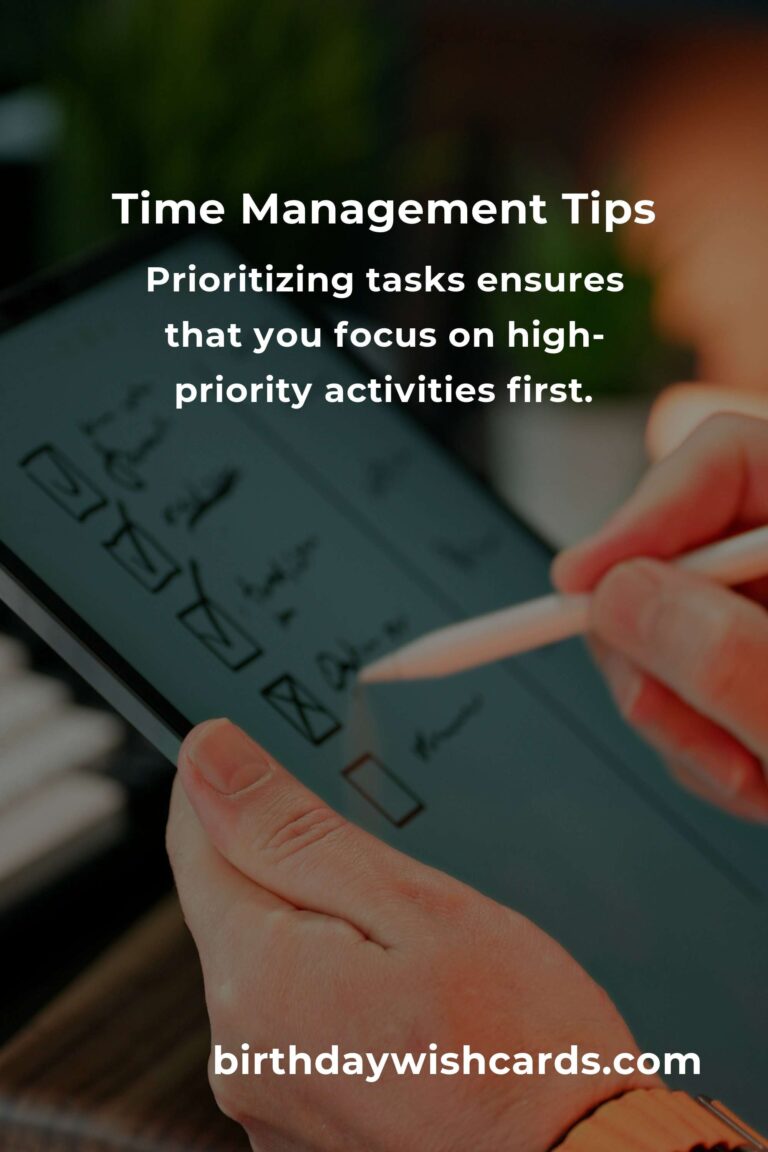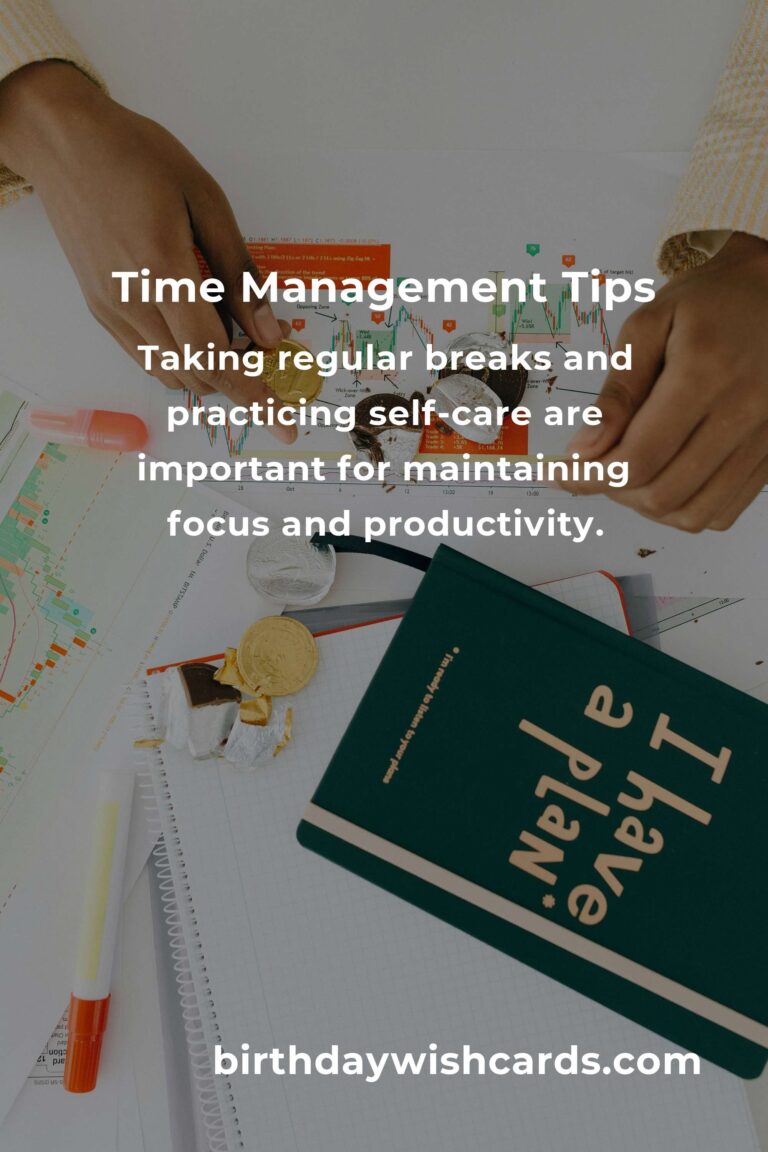
In today’s fast-paced world, effective time management is more crucial than ever. The ability to manage time efficiently can lead to increased productivity, reduced stress, and a better work-life balance. Whether you’re a professional, student, or stay-at-home parent, mastering time management is a skill that can benefit everyone. In this article, we will explore six essential tips to help you take control of your time and achieve your goals.
1. Set Clear Goals
The first step in effective time management is setting clear, achievable goals. Understanding what you want to accomplish helps prioritize tasks and allocate time appropriately. Start by identifying long-term goals and break them down into smaller, manageable tasks. This not only makes the goals less daunting but also provides a clear roadmap to success.
2. Prioritize Tasks
Once you have set your goals, it’s essential to prioritize tasks. Not all tasks are created equal, and some will require more attention and resources than others. Use a priority matrix to categorize tasks based on urgency and importance. Focus on high-priority tasks first, and delegate or postpone less critical ones. This ensures that you are making the most of your time and energy.
3. Use a Planner or Digital Tools
Organizing your tasks and schedule is vital for effective time management. Utilize planners or digital tools like calendar apps to keep track of appointments, deadlines, and tasks. These tools help visualize your time commitments and make it easier to plan your day, week, or month. Consistently updating and reviewing your planner ensures you stay on track and make necessary adjustments.
4. Avoid Multitasking
While multitasking might seem like a way to get more done, it can actually hinder productivity. Switching between tasks requires cognitive resources and can lead to errors and decreased efficiency. Instead, focus on one task at a time, complete it, and then move on to the next. This approach not only enhances productivity but also improves the quality of your work.
5. Set Time Limits
Setting time limits for tasks can help boost productivity and prevent procrastination. By establishing a specific timeframe for each task, you create a sense of urgency that encourages focus and completion. Use techniques like the Pomodoro Technique, which involves working for a set period (e.g., 25 minutes) followed by a short break. This method helps maintain concentration and energy levels.
6. Take Breaks and Practice Self-Care
Regular breaks and self-care are vital components of effective time management. Working for extended periods without breaks can lead to burnout and decreased productivity. Schedule regular breaks to rest and recharge, and engage in activities that promote well-being, such as exercise, meditation, or hobbies. Taking care of your physical and mental health ensures you remain focused and productive.
In conclusion, mastering time management involves setting clear goals, prioritizing tasks, using organizational tools, avoiding multitasking, setting time limits, and taking breaks. These strategies help maximize productivity and achieve a better work-life balance. By implementing these tips, you can take control of your time and accomplish more with less stress.
Effective time management is crucial for increased productivity and reduced stress. Setting clear, achievable goals helps prioritize tasks and allocate time effectively. Prioritizing tasks ensures that you focus on high-priority activities first. Using planners or digital tools can help organize tasks and schedules. Avoid multitasking as it can hinder productivity and lead to errors. Taking regular breaks and practicing self-care are important for maintaining focus and productivity.
#TimeManagement #Productivity #SelfCare #Goals #Focus













